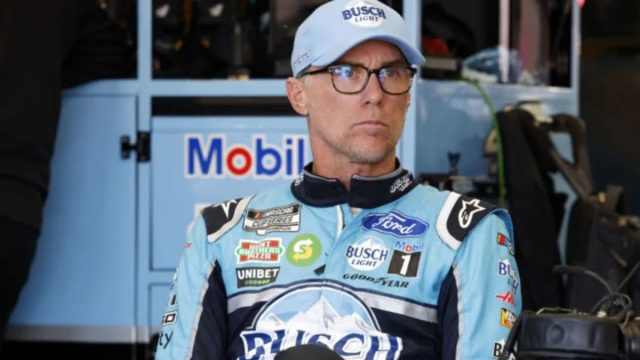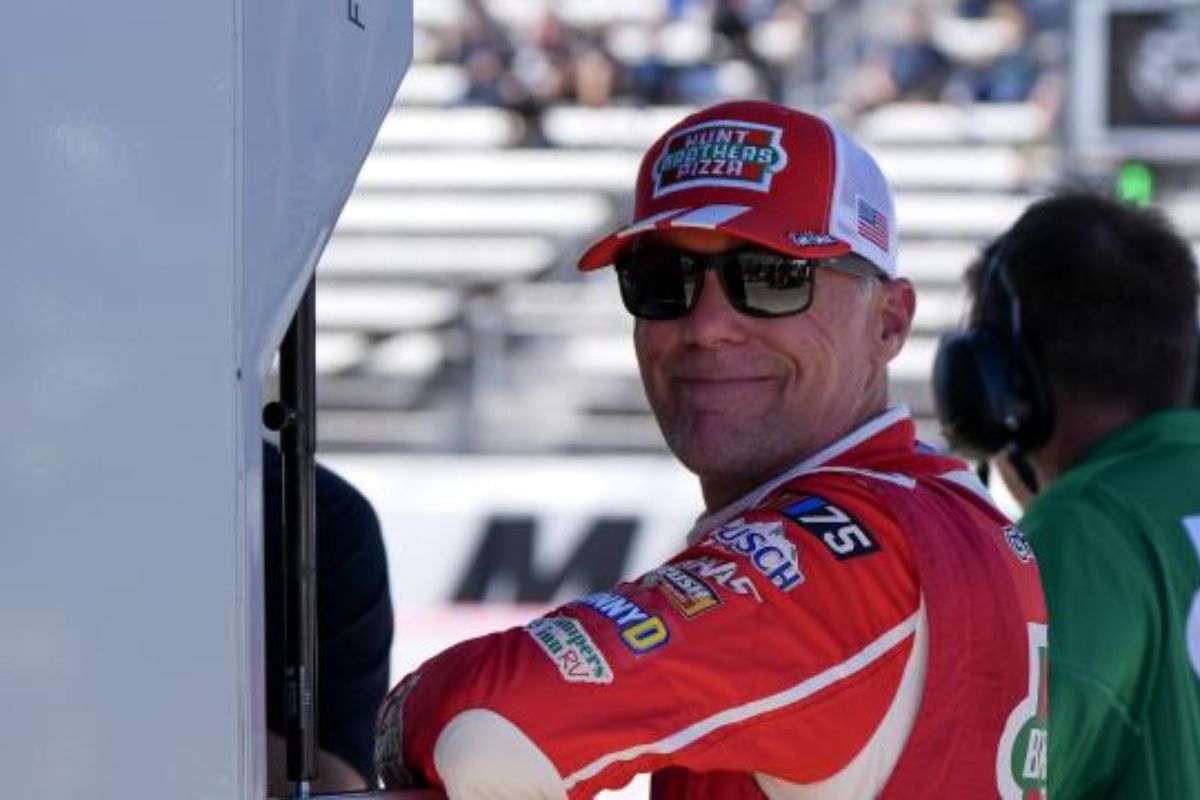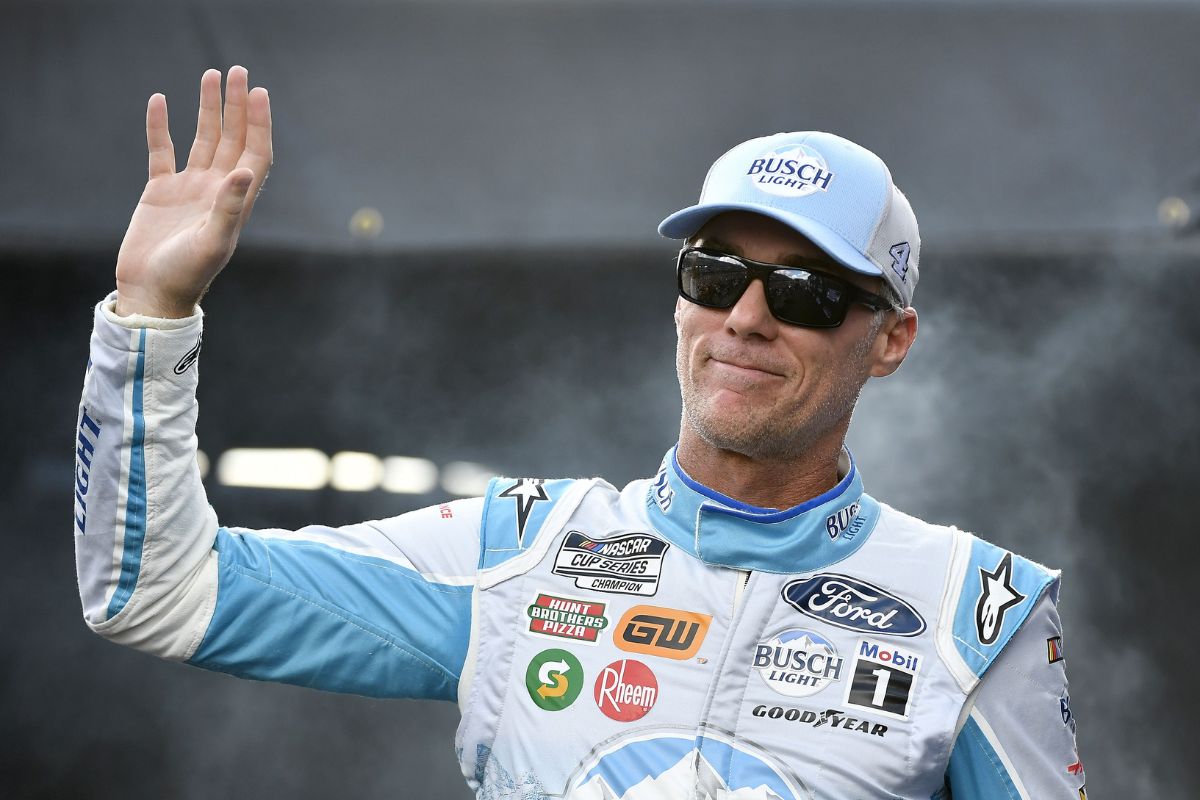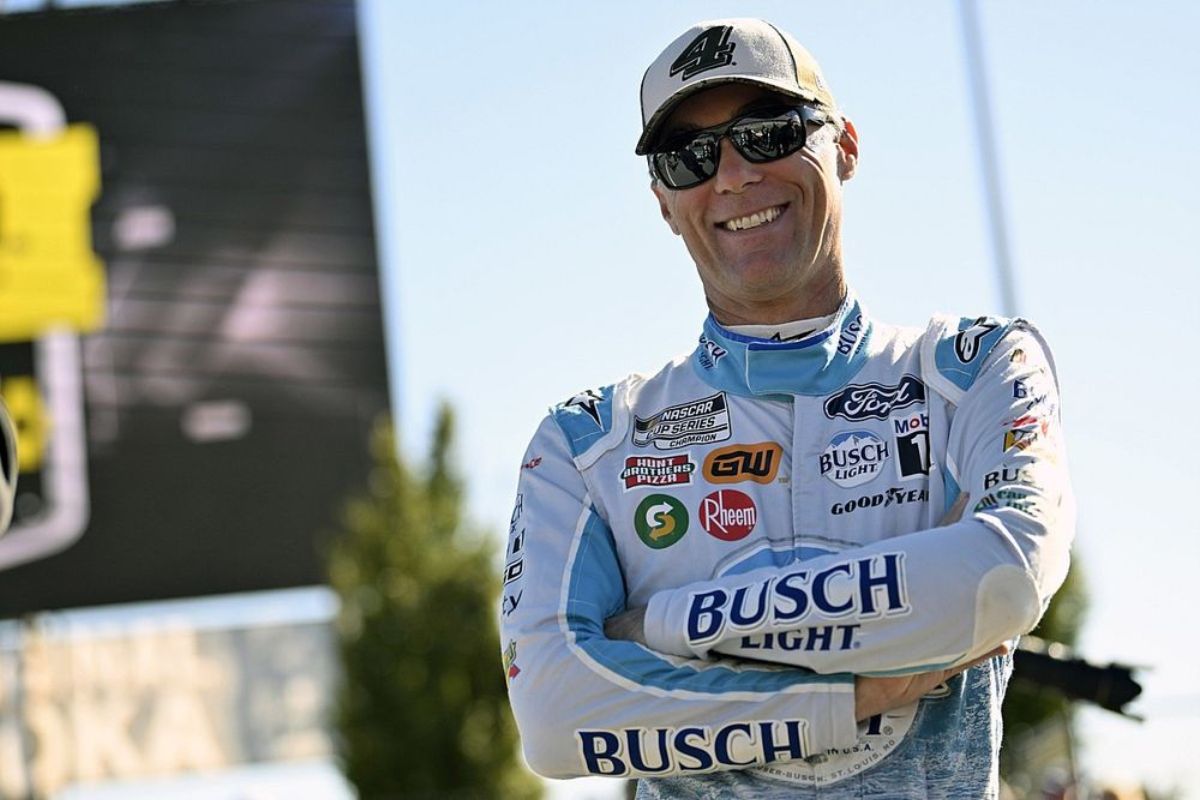Kevin Harvick Slams NASCAR’s Outdated Benefits: Kevin Harvick’s recent criticisms of NASCAR’s benefits structure highlight a notable concern regarding competitive balance within the sport. By suggesting that the current framework disproportionately favors drivers like Harrison Burton and Daniel Suarez, Harvick raises questions about the implications for overall team dynamics and the integrity of competition. His call for reform emphasizes the need for a more equitable system that would not only improve fairness but also energize the competitive landscape of NASCAR. The implications of such changes could reshape the sport’s future, prompting a closer examination of how benefits are allocated.
Key Highlights
- Kevin Harvick criticized NASCAR’s benefits structure for favoring certain drivers, like Harrison Burton and Daniel Suarez, which undermines competitive balance.
- Harvick argues that the current system creates disparities that can affect team morale and overall performance in the league.
- The outdated benefits system is seen as a barrier to fairness, prompting calls for reform within NASCAR to support all drivers equally.
- Harvick emphasizes the need for a merit-based approach to ensure that consistent performers are recognized and rewarded fairly.
- The favoritism shown towards specific drivers raises concerns about the integrity of NASCAR’s competitive environment, according to Harvick.
Controversy Surrounding the Playoff Format
The ongoing debate over NASCAR’s playoff format has intensified, particularly following Harrison Burton’s unexpected victory in the Coke Zero 400, which brought to light the system’s perceived flaws. This win, representative of the current structure, has reignited discussions regarding its fairness and effectiveness in rewarding driver performance over the season.
The playoff format, initially designed to create heightened excitement and a climactic finale to the racing season, has increasingly been criticized for favoring those who achieve a singular win rather than those who demonstrate consistent excellence.
Critics argue that the “one win and you’re in” aspect allows drivers who may not have performed steadily throughout the season to capitalize on a single moment of success, thereby undermining the achievements of those who have shown reliability and skill over multiple races. This sentiment is echoed by prominent figures in the NASCAR community, including Kevin Harvick, who questions the integrity of a system that permits less consistent drivers to advance in the playoffs solely based on sporadic victories.
As the NASCAR community deals with these issues, the ongoing discourse reflects a broader need for a reevaluation of the playoff criteria to better balance excitement with meritocracy, ensuring that the most deserving drivers are duly recognized and rewarded for their efforts throughout the season.
Kevin Harvick’s Critique of the Playoff Format
Amidst the ongoing discussions about NASCAR’s playoff system, Kevin Harvick has emerged as a vocal critic, emphasizing the need for a more robust evaluation of driver performance throughout the season. Harvick questions the credibility of a format that allows drivers like Ryan Burton, who has a mere 306 points, to compete for the championship despite being far behind in the standings. The pronounced contrast between Burton’s position and Tyler Reddick’s lead highlights a fundamental issue with the playoff structure.
In his recent comments on the Happy Hour Podcast, Harvick articulated his belief that the current system fails to recognize consistent performance across the season. He noted, This sentiment emphasizes a critical conversation about balancing entertainment value with competitive integrity.
“I can see it both ways; there’s an entertainment side, but I’m a traditional racer that wants the best 16 guys to race for that championship.”
“The 21 is not going to make the run in the playoffs; the 99 isn’t making the runs in the playoffs. They are just some of those guys that have won the race, Austin Cindric isn’t making the runs in the playoffs. Are we wasting spots?” – KEVIN HARVICK
Harvick’s critique invites stakeholders to reevaluate how NASCAR’s playoff format can evolve to genuinely reflect driver merit and performance consistency, fostering a more equitable racing environment.
One win can change it all. #NASCARPlayoffs pic.twitter.com/5ePDi3u3k8
— NASCAR (@NASCAR) August 27, 2024
Challenges for Drivers in the Playoff Bubble
Steering through the uncertainties of the playoff bubble presents a considerable challenge for drivers who find themselves on the cusp of rivalry. In the current NASCAR landscape, the playoff structure has inadvertently allowed subpar drivers to clinch spots, undermining the competitive integrity of the series.
For instance, while Harrison Burton and Daniel Suarez have secured playoff berths, their performances raise questions about their capability to contend for the championship. This discrepancy becomes glaring when juxtaposed against established contenders like the drivers of the #11 and #5 cars, who consistently demonstrate superior racing skill.
The emergence of drivers such as Burton and Suarez, who have enjoyed fleeting successes through tactical wins at crucial races like Daytona and Atlanta, accentuates the concerns of veteran drivers. Kevin Harvick has been particularly vocal, suggesting that these outcomes may dilute the competition, asking whether these drivers are merely occupying spots that could better serve more competitive teams.
The playoff format, designed to reward winners, inadvertently favors randomness over consistent performance, creating scenarios where strong teams are left on the sidelines.
Consequently, drivers within the bubble face the dual challenge of not only needing to outperform their rivals but also hoping that their competitors falter. The stress mounts as the playoff races unfold, forcing drivers to balance aggression with strategy while steering through the complexities of the current system.
Impact on Bubba Wallace and Ross Chastain
While the playoff structure has traditionally rewarded consistent performance, the recent surge of unexpected winners has placed considerable strain on drivers like Bubba Wallace and Ross Chastain as they navigate the playoff bubble. With multiple outside drivers claiming victories, the landscape has shifted dramatically, leaving those who once felt secure in their playoff standings increasingly vulnerable.
Bubba Wallace, representing 23XI Racing, faced a particularly challenging scenario. He entered the Daytona race just a point below the cutline but was forced to grapple with the chaotic nature of racing, including crashes that blemished his competitors’ performances.
Despite achieving a commendable sixth-place finish, Wallace found himself 21 points adrift of the playoff cutoff following Burton’s unexpected victory. This outcome highlights the volatility of the current playoff format, which can penalize drivers who perform well but are eclipsed by surprise winners.
Ross Chastain shares a similar predicament as he vies for playoff rivalry. The intensity of competition and the unpredictability of race outcomes necessitate that both drivers achieve not just solid finishes but also capitalize on every opportunity to secure wins.
The strain to perform under such circumstances is palpable, as one misstep could jeopardize their playoff aspirations.
Ross Chastain’s Situation and Potential for Upsets
Ross Chastain’s current standing in the NASCAR playoff race reflects the precarious balance between talent and luck that characterizes the sport today. Despite his raw skill and resolve, the 2024 season has not unfolded in a manner that highlights his full potential. Chastain finds himself 27 points below the playoff bubble, trailing competitors like Bubba Wallace. This deficit accentuates the critical need for Chastain to not only find race-winning speed but also to achieve consistent performances in upcoming races.
Chastain’s situation is representative of the unpredictability inherent in NASCAR, where a single race can dramatically alter the path of a driver’s season. To advance further in the competition, he must replicate the kind of late-race heroics that he displayed at Martinsville, where tactical overtakes and well-timed adjustments can turn the tide.
The potential for upsets looms large; the nature of the sport often allows for surprise winners, which could considerably shake up the playoff standings and impact Chastain’s chances.
As he prepares for this critical crossroads, the spotlight will be on whether he can harness the necessary elements to create his own luck and secure a coveted playoff position, further highlighting the delicate interplay between preparation and serendipity in NASCAR.
News in Brief: Kevin Harvick Slams NASCAR’s Outdated Benefits
Kevin Harvick’s criticisms of NASCAR’s benefits structure highlight notable disparities that compromise competitive equity within the sport. The favoritism shown towards certain drivers, such as Harrison Burton and Daniel Suarez, raises concerns regarding the integrity of the competition. Reforming the current benefits system is crucial to foster a more balanced and fair environment, ultimately enhancing the comprehensive competitiveness of NASCAR and ensuring that all drivers are afforded equal opportunities for success.
ALSO READ: Kevin Harvick Dismisses Max Verstappen Comparisons: “Kyle Larson Can Go Out and Drive Anything”



